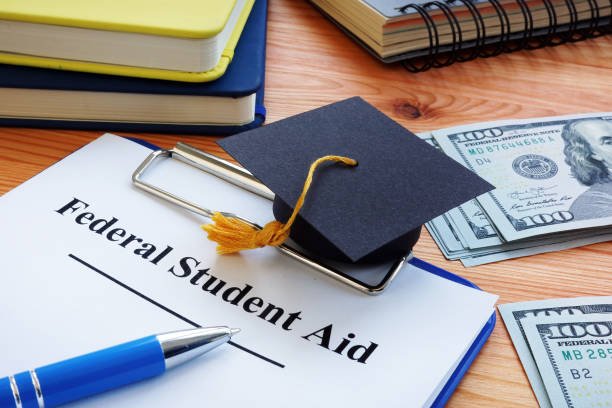1. Introduction
Today we discuss Ways to Save Money While Paying Off Student Loans. When you think of higher education, a good question that comes up is how will you finance your education? Deciding whether to take out private student loans or federal student loans can be difficult for many students and their parents.
Federal student loans go hand in hand, while private loans come from banks or private institutions. Each loan has its own interest rate, interest rate, and repayment options. This article will provide you complete information about Loans in 2024, you will have to take advantage.
2. Federal Student Loans: At a Glance

Federal student loans are loans that are granted under a federal mandate. The most popular loans in KY are direct subsidized and direct unsubsidized loans. The specialty of loans is that they are very convenient and convenient for students.
In a subsidized loan, the order covers the interest for the duration of your studies and up to 6 months after graduation. These surfs are for students who are in financial need. The second rate, in an unsubsidized loan, does not cover interest, and the interest continues to accrue throughout your education.
3. Interests and maps of federal loans
A big advantage of federal loans is that they offer flexible repayment options, such as income-based repayment plans, in which you repay your loan based on your income. There are also forbearance, deferment and forbearance options that allow you to stop paying your loan during difficult times. But one look at federal loans is that they are only available to a certain extent. If you need more money, you can take a private loan.
4. Private Student Loans: Is It the Best Option?
Private student loans are loans made at a rate by a bank, credit union or other private financial institution. The characteristics of the loans are that they can be more flexible, but they have a higher interest rate and are subject to income-based repayment.
Plans do not. Private loans have different conditions for each student based on their credit history, availability of a co-signer, and ability to repay. Aksar private loans have higher interest rates than federal loans, which can be up to twelve percent during the loan period or even after graduation.
5. Advantages and Disadvantages of Private Loans
A big advantage of private loans is that they can get you more money, especially if your financial need is high. But it is also important to remember that private loans have higher interest rates and more stringent repayment options. You should carefully consider your financial stability and ability to pay. If you are taking a private loan, you may need a co-signer who will be the guarantor of your loan if you default.
6. The Interest Rate Front: Federal vs. Private Loans

Interest rates are an important factor to consider when deciding on student loans. Federal student loan interest rates are fixed at the mandated rate and are updated annually. This interest rate is used in private loan worth. Second, interest rates on private loans can vary based on market conditions, your credit score and the co-signer’s credit history. If the risk of high interest rates is not an issue for you, then a private loan may be beneficial for you.
7. Prepayment of Withdrawal Plans and Options
Federal loans offer flexible options when it comes to repayment plans. Jesse’s income-based payment plans, in which you can pay according to your income. Federal loans also have deferment and forbearance options that allow you to temporarily stop making payments. In private loans, such options are limited and repayment terms are stricter. You should carefully evaluate payment options based on your financial situation.
8. Loan Forgiveness Program Method: Surf Federal Loans?
Federal student loan repayment also offers loan forgiveness programs, such as Public Service Loan Forgiveness (PSLF) and Teacher Loan Forgiveness. These programs may allow you to pay off part of your debt or pay off debt by working in public service for a while. No such programs are available in private loans. This can be a disadvantage if you are working in fields that qualify for loan forgiveness.
9. Requirement of co-signer: Is it a private loan shirt?

A private loan usually requires a co-signer, who co-signs the loan with you. A co-signer’s good credit history can get you a lower interest rate. But, if you fall short on your loan payments, that responsibility falls on your co-signer, which can send their credit score into the nixon. Federal loans do not require you to have a co-signer, which is a plus point for students who cannot afford a co-signer.
10. Conclusion
Deciding between federal and private student loans is based on your personal financial situation, ability to repay, and future plans. If you’re looking for flexible payment plans, low interest rates, and loan forgiveness programs, federal loans are for you.
But if you need more money and can arrange a co-signer, a private loan can also be a good option. You should weigh every aspect carefully to decide which loan is right for your future plans and financial stability.
By keeping your education and future career goals in mind while making this decision, you can easily manage your debt and successfully complete your education journey.
